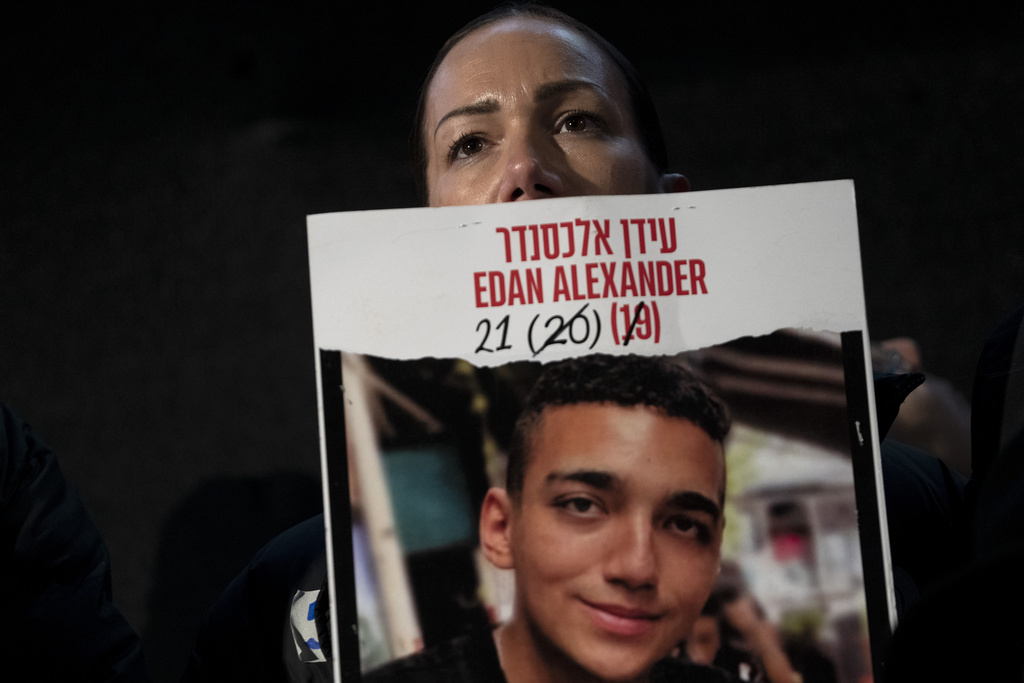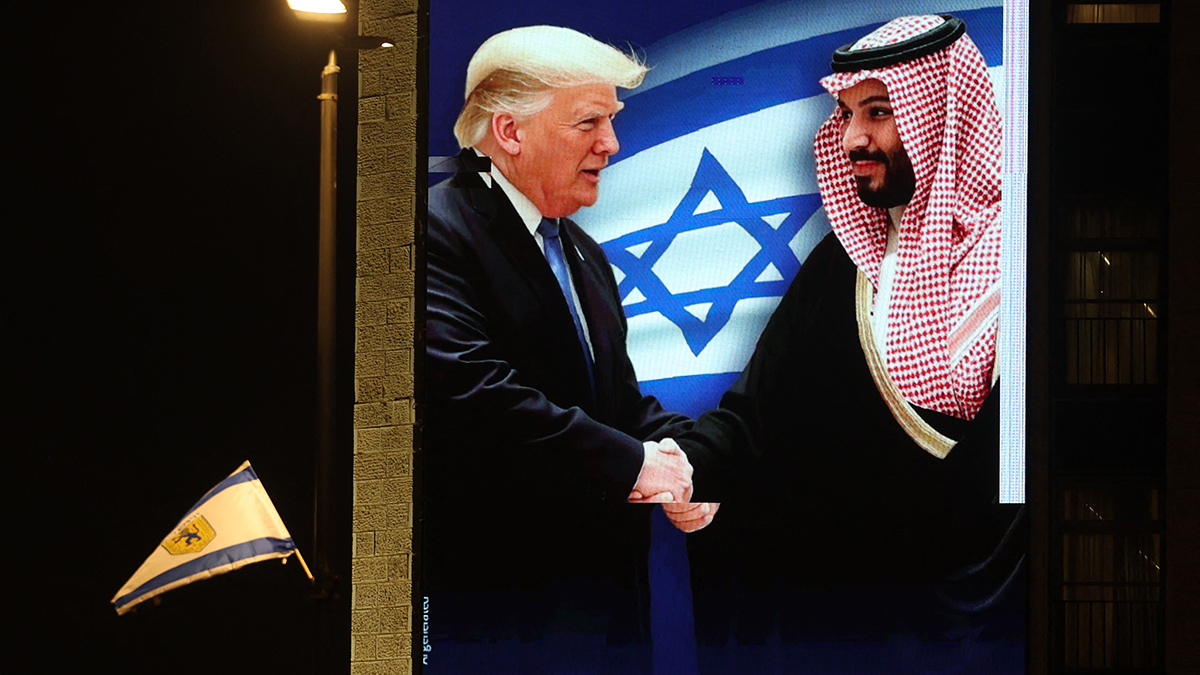Edan Alexander Release: Hope for Last American Hostage in Gaza?
Hamas to Release Edan Alexander: Hope for Gaza's Last American Hostage?
Introduction: A Ray of Hope in the Darkness
The news trickling out of Gaza can often feel like a constant stream of despair. But sometimes, a glimmer of hope pierces through the clouds. Today, we're talking about such a glimmer: the potential release of Edan Alexander, reportedly the last living American hostage held in Gaza. Could this be a turning point, a step towards peace and the easing of suffering for millions?
Hamas Announces Planned Release: The Details
Hamas has stated that they intend to release Edan Alexander as part of broader efforts to establish a ceasefire, reopen vital crossings into Gaza, and resume the desperately needed delivery of humanitarian aid. Two Hamas officials shared with The Associated Press that they anticipate the release will occur within the next 48 hours.
Trump's Envoy Confirms: A Good Will Gesture?
Adding another layer to the story, U.S. President Donald Trump’s envoy, Steve Witkoff, confirmed to AP that Hamas had agreed to release Alexander as a goodwill gesture towards Trump. This raises several questions: What's the motivation behind this gesture? And more importantly, what impact will it have on the larger conflict?
Timing is Everything: A Precursor to Trump's Middle East Visit
The announcement arrives just before Trump's planned visit to the Middle East this week. Is this a strategic move by Hamas to gain leverage or improve their standing before the visit? Or is it a genuine attempt to de-escalate tensions?
A Broken Ceasefire: The Context of the Release
It’s crucial to remember that this announcement comes after Israel shattered a ceasefire in March. This context highlights the fragility of any progress and the urgent need for lasting solutions.
Desperation in Gaza: The Human Cost of Conflict
The announcement underscores the growing desperation among hostages’ families and the over 2 million people living in Gaza under the renewed Israeli blockade. Imagine living under those conditions – constant shortages, limited access to resources, and the ever-present fear of violence. This release could offer a spark of hope in a very dark time.
Reopening Crossings: A Crucial Step Forward
One of the key components of the proposed agreement is the reopening of crossings into Gaza. These crossings are essential for the delivery of humanitarian aid, medical supplies, and other vital resources. Without them, the humanitarian crisis in Gaza will only worsen.
Why are these crossings so important?
The crossings serve as lifelines. They are the only channels through which essential supplies can reach the people of Gaza. When they are closed, the consequences are devastating.
Resuming Aid Delivery: A Matter of Life and Death
Resuming the delivery of aid is another critical element. The population of Gaza is heavily reliant on international aid to meet their basic needs. Without it, they face severe food shortages, lack of medical care, and a host of other challenges.
The Role of the United States: A Key Mediator
The United States has historically played a significant role in mediating conflicts in the Middle East. Trump's envoy's involvement in securing Alexander's release suggests that the U.S. remains committed to finding a peaceful resolution.
Impact on Ceasefire Talks: Momentum or Just a Pause?
Will this release inject new momentum into the stalled ceasefire talks? Or is it merely a temporary pause in the conflict? The answer remains to be seen, but it certainly creates an opportunity for renewed dialogue.
The Hostages' Families: Years of Agony
For the families of the hostages, this news brings a mix of hope and trepidation. They have endured years of anguish, uncertainty, and unimaginable pain. This release, if it goes through, would be a significant step towards healing their wounds.
The International Community: A Collective Responsibility
The international community has a responsibility to support efforts to achieve a lasting peace in the region. This includes providing humanitarian assistance, mediating negotiations, and holding all parties accountable for their actions.
What can the international community do?
The international community can:
- Provide humanitarian aid to the people of Gaza
- Support diplomatic efforts to achieve a ceasefire
- Investigate and prosecute war crimes
- Promote economic development and job creation
The Future of Gaza: A Path Towards Peace?
The release of Edan Alexander could be a crucial step towards a more peaceful future for Gaza. However, it is just one piece of a much larger puzzle. A lasting solution requires addressing the underlying causes of the conflict, including the blockade of Gaza, the ongoing occupation, and the lack of political and economic opportunities for Palestinians.
Challenges and Obstacles: What Could Go Wrong?
Of course, there are still many challenges and obstacles to overcome. The situation in Gaza is incredibly volatile, and any number of factors could derail the release. Political maneuvering, renewed violence, or a breakdown in negotiations could all jeopardize the agreement.
Potential Pitfalls:
- Renewed Israeli military operations
- Internal divisions within Hamas
- Failure to agree on terms for the ceasefire
Conclusion: Hope, But with Caution
The reported impending release of Edan Alexander represents a moment of hope amid a long and complex conflict. While it's crucial to welcome this potential step forward, it's equally important to maintain a sense of cautious optimism. The situation remains fragile, and lasting peace will require sustained effort, commitment, and compromise from all parties involved. Let's hope this marks the beginning of a new chapter for Gaza and the region as a whole, one filled with peace, prosperity, and justice.
Frequently Asked Questions
- What is the current status of Edan Alexander?
According to reports, Hamas has stated their intention to release Edan Alexander within the next 48 hours as a goodwill gesture. However, confirmation of his actual release is pending.
- Why is Hamas releasing Edan Alexander now?
Hamas claims the release is part of efforts to establish a ceasefire, reopen Gaza crossings, and resume aid delivery. The timing also coincides with President Trump's planned visit to the Middle East.
- What impact will the release have on ceasefire negotiations?
The release could inject momentum into stalled ceasefire talks, but it's not guaranteed. It depends on the response from Israel and other international actors.
- What are the conditions like in Gaza under the current blockade?
Conditions in Gaza are dire, with severe shortages of food, medicine, and other essential supplies. The blockade has had a devastating impact on the population.
- How can I help the people of Gaza?
You can support reputable humanitarian organizations that provide aid to Gaza, advocate for a peaceful resolution to the conflict, and educate yourself and others about the situation.

